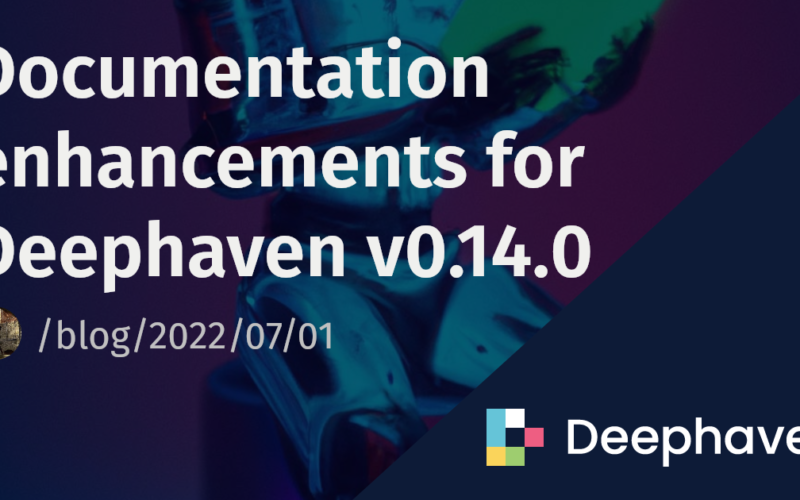This summer, several interns have joined the Deephaven Community Core team! They’re each taking on unique projects, ranging from Bitcoin to baseball, and writing about their experiences.
In consequence, you’ll find varied blog content throughout the next two months, as well as additions to our deephaven-examples repository.
Highlights from our blog, user documentation and YouTube channel are discussed below.
How to win $5.6 million on your summer vacation
Paul Pellegrene and Joshua Koskie have set out to accomplish what no one has yet succeeded to do: win the coveted MLB Beat the Streak prize – $5.6 million. Can Python programming and data science provide the necessary competitive edge? We’ll find out this summer.
Read about their road map and goals in the first episode of their Beat the Streak blog series. Our CEO weighs in, wondering, “Can a village beat DiMaggio’s streak?”.
From zero to hero: learning to work with real-time data
Learning to work with real-time data is essential for modern data analytics, but can be intimidating at first. Joshua Hilgartner chronicles his steps learning Deephaven as he moves toward a real-time data project:
Stay tuned for his next installment, where puts all this together for deeper stock analysis.
Making data visualizations even better
Stacy has been focused on ML/AI use cases. For her first project, she integrates TensorBoard with Deephaven, making this available to users in our newest Deephaven Docker images. Check out the how-to guides:
We’ve also enhanced our matplotlib integration. JJ shows how to work with real-time data and animate your plots.
Navigating the crypto market
The matplotlib example above plots crypto prices in real time. JJ also writes about creating your own historical database for crypto, and how to efficiently store your files using Parquet rather than CSV.
Deephaven’s data grid package is an incredibly powerful tool for displaying massive datasets in your browser. We’ve expanded its documentation in a new home on our site. These how-to guides include Live Editors, so you can modify the sample code to render a preview of the result immediately.
Additionally, we explain How to write your own custom parser in Kafka in the primary user guide.
Last month we began live streaming our dev-rel learning sessions. JJ gave two talks on working with APIs:
Look out for developer demos weekly to see how Deephaven Community Core continually evolves.
Source link
lol

